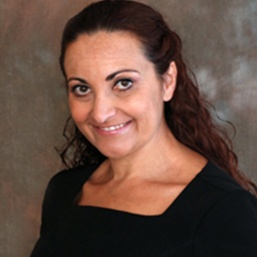
In a Facebook post back in 2015, Mark Zuckerberg shared that miscarriage was a ‘lonely experience’ and that ‘you struggle on your own’. He and his wife were expecting a baby girl after having three miscarriages. At the time, the post received 1.7 million likes and the couple received widespread praise for their openness to discuss such a difficult subject.
Research indicates, that miscarriages are the most common complication of pregnancy occurring in up to one in four pregnancies. This loss can have devastating effects in both men and women facing this experience. Unfortunately, in most cultures, miscarriage still is a taboo subject and couples are usually advised not to share the news of pregnancy with family and friends before 12 weeks. Therefore those having a miscarriage early on in the pregnancy might feel alone and isolated.
Most grieving couples pass through the five stages of loss described by Elisabeth Kubler-Ross. There might be a sense of denial, a sense of ‘this cannot be happening to me and my partner’. There might be anger at the ‘unfairness of it all’ or anger towards a partner, doctor or other professionals assisting them with their process of getting pregnant. ‘Why can’t they get it right? They’re supposed to be experts!’ During the bargaining phase, a woman can try and do everything right to become pregnant, change her diet and read everything there is about conception. At times a couple can get feelings of depression and experience a sense of hopelessness and helplessness. If this phase is prolonged maybe it is time to seek professional help. During the acceptance phase the couple will start feeling that ‘it’s going to be ok’. At this point they might start exploring different options including assisted reproductive technology (ART), adoption or the option of living without having children. It is important to note that this grieving process is not linear and at times feelings of loss can come back at the most unexpected of times.
The silence that shrouds miscarriage can be very difficult to face. There is no right work to work through this loss however there are some activities that can help.
Journaling
Journaling can be very cathartic. It is a good way of expressing feelings that we are not ready to share with others. In fact, it might help us express anger, sadness and feelings of loss. This may also include writing a letter to your (hoped for) baby and expressing all that’s in your heart.
Plant a garden
Being in nature or near the sea can be healing. Moreover, there is something very special in planting seeds, working with soil and watching a plant grow. Planting a seed for a pregnancy lost can be a sign of hope.
Create a community of support
Stick around family and friends who understand, who listen. Accept to go out for a walk and talk about your loss. Do not isolate yourself from those who love you especially your partner. Most probably they are grieving too…
In today’s open and connected world, discussing these issues does not distance us; it brings us together. It creates understanding and tolerance, and it gives us hope.
Zuckerberg, 2015
If you’ve experienced a miscarriage and you would love to share your experience with wham, contact us or email us at [email protected]

Anna Catania (M.Cons. PG(Dip) Psychosexual and relationship therapy is a warranted counsellor specialised in the area if sex and relationships. She provides counselling to individuals and couples who are having difficulties with sexuality, relationships and intimacy.
Click here to check out Anna’s full bio as well as a list of all her Wham published articles





